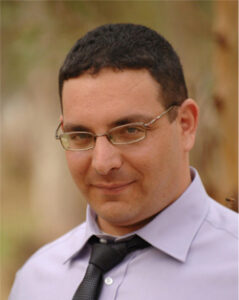Workshop on Echoing (failed) Efforts in Planning (WEEP)
1st ICAPS Workshop on Echoing (failed) Efforts in Planning (WEEP 2024)
Banff, Alberta, Canada
June 3, 2024
Aim and Scope of the Workshop
Generally, researchers expect their work to loosely follow these landmarks: idea → formalization + approach → implementation + evaluation → write paper → publication. But what happens if you do not get the results you expected from your idea? Usually, you will try to understand what causes your approach to behave differently from what you expected, and you can get three main different outcomes from this:
- You find issues and know how to solve them
- You find that your approach does not work and have a clear understanding of the reasons
- You have no idea what is going wrong
If you land on point 1), then you solve the issues and continue your plan towards publication. If you land on points 2) or 3), your idea will most likely end up in a drawer, unknown to anyone but you and your co-workers. If this is the case: do not weep, just… WEEP!
In the spirit of workshops about negative results of other top conferences, such as I Can’t Believe It’s Not Better workshop (NeurIPS) and Workshop on Insights from Negative Results in NLP (ACL), we present the first Workshop on Echoing (failed) Efforts in Planning (WEEP). WEEP focuses on open discussions about unsuccessful research endeavors and current limitations in the field of automated planning. We encourage submissions that investigate the causes of an initial idea not working as expected, or works where authors are still in the process of understanding the causes of the setbacks and will discuss their current findings and suspicions. We also encourage works exploring the limitations of current planning methodologies and formalisms. The idea is to allow the planning community to benefit from your experiences, let participants provide insightful comments and even identify specific issues, and foster collaborations among people potentially interested in the work.
Workshop Schedule
[09:00 - 09:15] Opening Remarks
[09:15 - 10:00] Invited talk by Erez Karpas
“Looking for Serendipity – Where (Some) Research Questions Come From?”
[10:00 - 10:30] Coffee Break (get your caffeine fix)
[10:30 - 11:15] Paper Presentations
- Can Soft Goals be Compiled Away More Efficiently? (PDF)
Alberto Pozanco - On the difficulties for the Evaluation of Learned Planning Models (PDF)
Antonio Garrido and Alba Gragera - PbFCEGAR: Pre-refined by Facts Counterexample-Guided Abstraction Refinement (PDF)
Martín Pozo, Álvaro Torralba and Carlos Linares López - On an Attempt at Casting Orbit Search as a Task Transformation (PDF)
Daniel Gnad and David Speck
[11:15 - 12:00] Panel Discussion: Challenges and opportunities involved in communicating research efforts that did not turn out as successful as intended.
Panelists: Sarah Keren (Israel Institute of Technology), Malte Helmert (University of Basel), Daniel Fišer (Saarland University)
Invited Speaker
Erez Karpas

Looking for Serendipity – Where (Some) Research Questions Come From?
Serendipity is an unplanned fortunate discovery. In this talk, I will describe how I have stumbled on some very interesting research questions by paying attention to small details. I will then try to give some general advice on how to look for interesting research questions in your own work.
Short Bio
Erez Karpas is an Associate Professor at the Faculty of Data and Decision Sciences (formerly known as Industrial Engineering and Management) at the Technion – Israel Institute of Technology. Prior to that he was a postdoctoral fellow at the Model-based Embedded and Robotic Systems group at MIT, and before that we completed his PhD at the Technion (2012), and his M.Sc. (2005) and B.Sc. (2001) at Ben Gurion University. His main research interest is in automated planning and robotics.
Topics of Interest
We seek papers with negative results or limiting factors in any topics related to automated planning. This includes but is not limited to the following areas:
- Applications of automated planning
- Evaluation of automated planning techniques
- Classical planning
- NLP in planning
- Learning for planning
- Numeric planning
- Non-deterministic planning
- Heuristics for automated planning
- Search algorithms
- Open problems and challenges for planning
Important Dates
- Submission deadline: 7 April 2024 (UTC-12 timezone)
- Notification: 28 April 2024
- Workshop: June 2-3 2024
Submission Details
We specially encourage short papers with the length between 2 and 4 pages (+1 for references), but full papers with the length up to 8 pages (+ 1 for references) are also welcomed. All papers must be submitted in PDF format following the ICAPS 2024 author kit instructions for formatting. Regardless of their length, all papers must present an exploration of the negative results. This includes discussions on both the expected results and actual outcomes. If a clear conclusion is reached, authors could include an insights section that elaborates on the reasons for the failure. In the case of papers addressing limitations in the current state-of-the-art in planning, it is essential to provide a clear explanation of the limitation and articulate the motivations behind solving this particular constraint, emphasizing its potential contribution to the planning community. Submissions will be done via easychair.
Organizing Committee
- Mauricio Salerno, Universidad Carlos III de Madrid, msalerno@pa.uc3m.es (primary contact)
- Alba Gragera, Universidad Carlos III de Madrid, agragera@pa.uc3m.es (primary contact)
- Daniel Gnad, Linköping University, daniel.gnad@liu.se
- Raquel Fuentetaja, Universidad Carlos III de Madrid, rfuentet@inf.uc3m.es
- Fernando Fernández, Universidad Carlos III de Madrid, ffernand@inf.uc3m.es
Program Committee
- Antonio Garrido, Universitat Politècnica de València
- Alberto Pozanco, J.P. Morgan Chase
- Mauro Vallati, University of Huddersfield
- Blai Bonet, Universidad Simon Bolivar
- Susana Fernández, Universidad Carlos III de Madrid
- Sergio Jiménez Celorrio, Universitat Politècnica de València
- Connor Little, Queen’s University
- Victoria Jane, Queen’s University
- Martin Funkquist, Linköping University
- Markus Fritzsche, Linköping University
